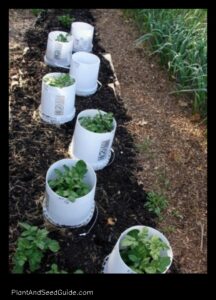Planting grass seed in Massachusetts during the spring season is an exciting endeavor that can lead to a lush and vibrant lawn. By following the right tips and guidelines, you can ensure successful growth and maintenance of your grass seed. From choosing the right grass seed variety to dealing with common issues, each step plays a crucial role in the overall outcome of your lawn. Let’s explore the essential aspects of planting grass seed in Massachusetts this spring:
- Choosing the Right Grass Seed
- Preparing the Soil
- Sowing the Grass Seed
- Watering and Maintenance
- Dealing with Common Issues
- Transitioning to Summer Care
- Enjoying a Lush Lawn
Choosing the Right Grass Seed
When it comes to choosing the right grass seed for your Massachusetts lawn, there are several factors to consider to ensure successful growth and a lush appearance. The climate and soil type in Massachusetts play a significant role in determining the most suitable grass seed variety. Additionally, understanding the intended use of the lawn, whether it’s for high traffic areas or purely aesthetic purposes, is crucial in making the right selection.
Here are some key points to keep in mind when selecting the appropriate grass seed:
- Climate: Consider the local climate in Massachusetts, including temperature fluctuations and precipitation levels, to choose a grass seed variety that can thrive in these conditions.
- Soil Type: Different grass species prefer specific soil types, so it’s essential to know the composition of your soil and select a seed that is compatible with it.
- Intended Use: Determine how the lawn will be used – whether it’s for heavy foot traffic, play areas, or purely ornamental purposes – to select a grass seed that can withstand the intended use.
By taking these factors into account, you can make an informed decision when choosing the right grass seed for your Massachusetts lawn, setting the foundation for a vibrant and healthy green space.

Preparing the Soil
When it comes to planting grass seed in Massachusetts during the spring season, preparing the soil is a crucial step for ensuring successful growth.
Here are some essential steps to consider when preparing the soil:Properly prepping the soil sets the foundation for healthy grass to thrive and flourish..
- Soil Testing: Before planting grass seed, it’s important to conduct a soil test to determine its pH level and nutrient content. This information will help you select the right amendments to improve soil quality.
- Soil Amendment: Based on the soil test results, add organic matter such as compost or peat moss to enrich the soil and provide essential nutrients for the grass seed to grow.
- Leveling the Soil: Ensure the soil surface is smooth and level to promote even seed distribution and proper seed-to-soil contact. Use a rake or roller to eliminate any bumps or depressions.
By following these soil preparation guidelines, you can create an optimal environment for your grass seed to germinate and establish strong roots. Remember, a healthy soil foundation leads to a lush and vibrant lawn in Massachusetts.
Sowing the Grass Seed
When it comes to sowing grass seed in Massachusetts during the spring season, proper techniques are crucial for successful growth. Ensuring even distribution of the grass seed, adequate coverage, and optimal seed-to-soil contact are key factors in promoting healthy germination and growth.
Here are some essential steps to follow when sowing grass seed:
- Prepare the Soil: Before sowing the grass seed, it is important to prepare the soil properly. This includes testing the soil to determine its pH level and nutrient content, amending the soil as needed, and leveling the surface to create an ideal environment for seed germination.
- Choose the Right Time: Selecting the appropriate time to sow grass seed is crucial. Spring is generally the best season for planting grass seed in Massachusetts, as the soil temperature and moisture levels are conducive to germination.
- Spread the Seed Evenly: Use a broadcast spreader or hand spreader to evenly distribute the grass seed across the prepared soil. This ensures uniform coverage and prevents overcrowding, which can inhibit growth.
- Cover the Seed: After spreading the grass seed, lightly rake the soil to cover the seeds with a thin layer of soil. This helps protect the seeds from birds, wind, and excessive sunlight, promoting successful germination.
- Watering: After sowing the grass seed, water the area gently to moisten the soil. Avoid overwatering, as it can lead to seed displacement or rotting. Maintain consistent moisture levels to support germination and early growth.
By following these steps and techniques when sowing grass seed in Massachusetts, you can enhance the chances of establishing a lush and healthy lawn that will thrive throughout the spring and summer seasons.

Watering and Maintenance
When it comes to watering and maintenance of your newly planted grass seed in Massachusetts, attention to detail is key for achieving a lush and healthy lawn.
Here are some essential guidelines to follow:Proper watering techniques and regular maintenance practices play a crucial role in the success of your grass seed growth..
- Watering: Ensure your grass seed receives an adequate amount of water, keeping the soil consistently moist but not waterlogged. Deep, infrequent watering is preferable to frequent, shallow watering to encourage deep root growth.
- Mowing: Maintain the proper mowing height for your grass variety, typically removing no more than one-third of the grass blade at a time to promote healthy growth.
- Fertilizing: Apply a balanced fertilizer according to the specific needs of your grass type, avoiding over-fertilization which can harm the grass.
- Protecting: Keep an eye out for any signs of pests, diseases, or weed growth, and take appropriate action to address these issues promptly.
By following these watering and maintenance tips diligently, you can ensure that your grass seed in Massachusetts thrives and transforms into a vibrant and resilient lawn that you can enjoy throughout the spring and beyond.
Dealing with Common Issues
When planting grass seed in Massachusetts, it’s essential to be prepared for common issues that may arise during the process. From pesky weeds to potential diseases, being equipped to handle these challenges can make a significant difference in the success of your lawn. Here are some tips for dealing with common issues:
- Weeds: Keep an eye out for unwanted weeds that can compete with your grass seed for nutrients and space. Regularly inspect your lawn and remove any weeds promptly to prevent them from taking over.
- Pests: Insects like grubs and beetles can cause damage to your grass seedlings. Consider using natural pest control methods or consult with a professional for effective solutions.
- Diseases: Fungal diseases can pose a threat to your newly planted grass. Ensure proper ventilation, avoid overwatering, and use disease-resistant grass seed varieties to minimize the risk.
- Erosion: Heavy rainfall or improper watering techniques can lead to soil erosion, affecting the growth of your grass seed. Implement erosion control measures such as mulching or installing barriers to protect your lawn.
By being proactive and addressing these common issues early on, you can set your grass seed up for success and enjoy a lush, healthy lawn in Massachusetts.

Transitioning to Summer Care
Transitioning to summer care is a crucial phase in maintaining a healthy and vibrant lawn in Massachusetts. As the temperatures rise and the days get longer, your grass will require different care to thrive. One essential aspect is adjusting your watering schedule to accommodate the increased heat and evaporation rates. Deep, infrequent watering is key to promoting deep root growth and drought resistance.
Additionally, it’s important to continue mowing your lawn regularly but adjust the height of the mower blades slightly higher to provide shade for the soil and retain moisture.
Fertilizing during this time should focus on slow-release fertilizers to sustain the grass throughout the summer months..
When transitioning to summer care, consider implementing these practices:
- Monitor soil moisture levels regularly
- Adjust watering frequency based on weather conditions
- Inspect for signs of pests or diseases and take appropriate action
- Provide adequate aeration to ensure oxygen reaches the roots
By following these guidelines and adapting your lawn care routine to the changing season, you can enjoy a lush and healthy lawn throughout the summer in Massachusetts.
Enjoying a Lush Lawn
After putting in the hard work of planting and caring for your grass seed in Massachusetts, it’s time to sit back and enjoy the fruits of your labor. A lush lawn not only enhances the beauty of your property but also provides a relaxing and inviting outdoor space for you and your family to enjoy. Here are some tips to help you make the most of your lush lawn:
- Regular Watering: Keep your grass well-hydrated by watering deeply but infrequently to promote deep root growth.
- Proper Mowing: Maintain the ideal grass height for your chosen variety by mowing regularly and ensuring your mower blades are sharp.
- Fertilization: Feed your grass with the appropriate fertilizers to keep it healthy and vibrant throughout the summer.
- Weed Control: Stay vigilant against weeds by regularly inspecting your lawn and addressing any unwanted growth promptly.
- Regular Maintenance: Stay on top of lawn care tasks such as edging, aerating, and dethatching to keep your grass looking its best.
By following these tips and staying proactive in your lawn care routine, you can enjoy a lush and thriving lawn that will be the envy of your neighborhood in Massachusetts.
Frequently Asked Questions
- What is the best time to plant grass seed in Massachusetts?
The ideal time to plant grass seed in Massachusetts is during the spring season when the soil temperature is optimal for seed germination and growth.
- How do I choose the right grass seed variety for my lawn?
When selecting grass seed, consider factors such as the climate in Massachusetts, the soil type in your area, and the intended use of the lawn (e.g., high traffic or shade).
- Do I need to test my soil before planting grass seed?
Yes, it is recommended to test your soil to determine its pH level and nutrient content. This will help you make informed decisions about soil amendments for successful grass seed growth.
- How often should I water newly planted grass seed?
Water newly planted grass seed regularly to keep the soil moist but not waterlogged. Avoid overwatering, as it can lead to issues like fungal diseases.
- What should I do if I encounter weeds or pests in my lawn?
If weeds or pests appear, consider using organic or chemical control methods to address the issue while minimizing harm to the environment and existing grass.
- Wild Rose Country: Exploring Untamed Beauty - July 15, 2024
- Wildflower Nursery Decor: Bringing Nature Indoors - July 15, 2024
- Young Sprout of Grass: Nurturing New Life - July 15, 2024








